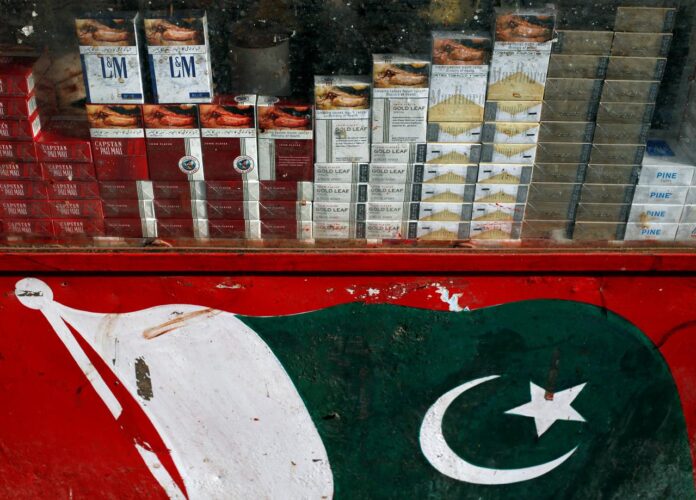ISLAMABAD: The Federal Board of Revenue (FBR) has been ‘delaying’ installation and implementation of track and trace system (TTS) to curb illicit tobacco trade in Pakistan as illegal tobacco products continue to pour in the country.
The tobacco products include undeclared local production, smuggling of tobacco products of foreign brands and counterfeit production.
The tobacco sector in Pakistan contributed significant revenue to FBR in 2018-19 amounting to Rs117 billion (Rs 90.854 billion FED and Rs26.147 billion sales tax).
A study conducted by Oxford Economics put Pakistan as Asia’s largest illicit cigarettes market causing on average loss of Rs44 bn per annum in unpaid taxes and duties during the past five years. The primary reason for the existence of illegal manufacturers and traders is the tax-driven price differential between legal and illicit brands, which currently stands nearly at 130 per cent.
Over the past two years, drive against tax evasion has intensified, especially in the tobacco sector. In 2017, FBR had established the Inland Revenue Enforcement Network (IREN) to curb the menace of illicit cigarettes, by enforcing the laws against tax evasion. Since then, IREN has seized more than 1bn illicit cigarettes and other illegal equivalents of tobacco.
According to IREN, 19 companies in Pakistan are selling more than 55 brands, between the price ranges of Rs20 to Rs29. It is impossible for tax-paying producers to sell cigarettes at such cheap prices because the minimum excise tax on a pack of cigarettes is approximately Rs33 and the minimum price of any pack has been set at R63.
Earlier this year, the FBR started a countrywide crackdown against the sale of illicit cigarettes on the orders of Prime Minister Imran Khan seeking to impose hefty fines and imprisonment to the violators of the law.
‘Track and trace system’
Additionally, FBR also initiated a project to implement a track and trace system for tobacco products to meet its national need to monitor and protect its revenues and address the high level of illicit trade within its borders. This step is also essential to meet international obligations under FCTC to implement a track and trace system that can form part of a regional and/or global international track and trace regime for tobacco products.
The system once implemented, will monitor all locally produced and sold tobacco products which is expected to curb significantly the sale of locally produced tax evading and smuggled cigarettes that causes billions of loss every year to the national exchequer.
Through measures taken at all entry points and throughout the value chain to root out smuggled, counterfeit or duty-not-paid tobacco, illicit trade is expected to be eliminated from the country and uplifting the economy and industry as well.
The system which was to be implemented in September 2019 continues to face delays, most recently due to litigation. Delay in the implementation of the track and trace system directly benefits the illicit sector in making unlawful profits while causing huge loss to the economy in terms of unpaid duties and taxes.
























